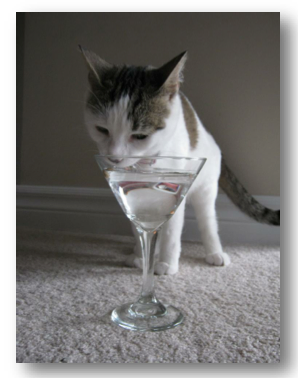
I would deworm anyway with Milbemax - false negatives are common with faecal flotations and I have to assume that she is exposed to internal parasites by virtue of her lifestyle. Once now & repeated in 2-3 wks.
How much is the URI affecting her? Is she appetent? Is she spayed?
Metronidazole (10mg/kg) certainly be a useful antibiotic to tamp down the anaerobes that may be present and producing gas, as well as a treatment for possible giardia.
The URI may be solely viral and, with better nutrition, deworming and a resolution of the diarrhea, may be self-limiting. Depending on the severity, I may hold off on treating this specifically until the other issues had resolved. If it did affect her, I would consider Baytril (doxy is my first choice for URIs, but may cause too much GI upset).
Diet - wet chicken/rice variety, like i/d or gastro, little & often feeding schedule. Need to feed those villi to get them to heal, without asking too much of them! I would additionally add in a probiotic to help adjust the bacteria in the gut (Fortiflora or similar).
How'd I do?
Great thoughts! The initial therapeutic approach taken for "Martini" was:


At this point, I'd like to make mention of the Fecal Scoring System. It is helpful for better characterizing the patient's stool (instead of words like, soft, loose or liquidy) and can help when making a determination about a patient's response to treatment / management of GI issues. This helpful guide is courtesy of Nestle Purina:

Back to "Martini" - in questioning the owner further and examining a stool sample provided:
At this point, the owner agreed to blood work and abdominal radiographs. Findings were:
In summary here's what we know about "Martini" to this point:
Question 1: Does she have small bowel or large bowel diarrhea?
Question 2: What are the main rule outs for this patient?
If you think that "Martini" has small bowel disease, you are correct. For your reference, this table describes characteristics of small bowel and large bowel disease:

As for rule outs, our list of differentials should include:
A GI panel would rule in/out pancreatitis and EPI (fPL & TLI)
If these were normal, I would then be discussing endoscopy or exploratory with the owners to confirm my suspicion of IBD and to characterize it so as to better treat it. Exploratory would be preferable because you would get a better biopsies of the intestines (full thickness) and would also be able to biopsy the liver and pancreas at the same time. Endoscopy is less invasive, but more limited in its scope.
If the owners were unable or unwilling to get biopsies, I would have to put the cat on prednisolone as an alternative.
Great thinking! :)
GI function testing was done - results are as follows:
* fTLI = 5.9 ug/L (normal = 12-82 ug/L)
* Cobalamin = < 110 pmol/L (normal = 600-1800 pmol/L)
* Folate = 75 nmol/L (normal = 27-46 nmol/L)
Based on history, physical and lab findings our primary diagnosis was made: Exocrine pancreatic insufficiency (fTLI <8 ug/L). Inflammatory bowel disease may still be a possibility (concurrently) - recall her ALT is increased.
From the literature: a paper on cats with EPI reported by Xenoulis et al in J Vet Intern Med (2012) - in that paper:


Of note - there are species difference in presentation of EPI:

Question: On to treatment: What would you prescribe for "Martini?"
pancreatic enzymes with every meal, 1/4 tsp from memory. And start B12 injections, 0.5ml weekly 6w then monthly thereafter. Continue with low residue/hypo diet for presumed IBD. See what effect this has and then add in metronidazole or prednisolone for IBD if diarrhea not fully controlled with enzymes alone.
Our treatment plan for "Martini" included:
Pancreatic enzymes with each meal (90% of cats will have a total or partial response) and a
canned hypoallergenic diet.